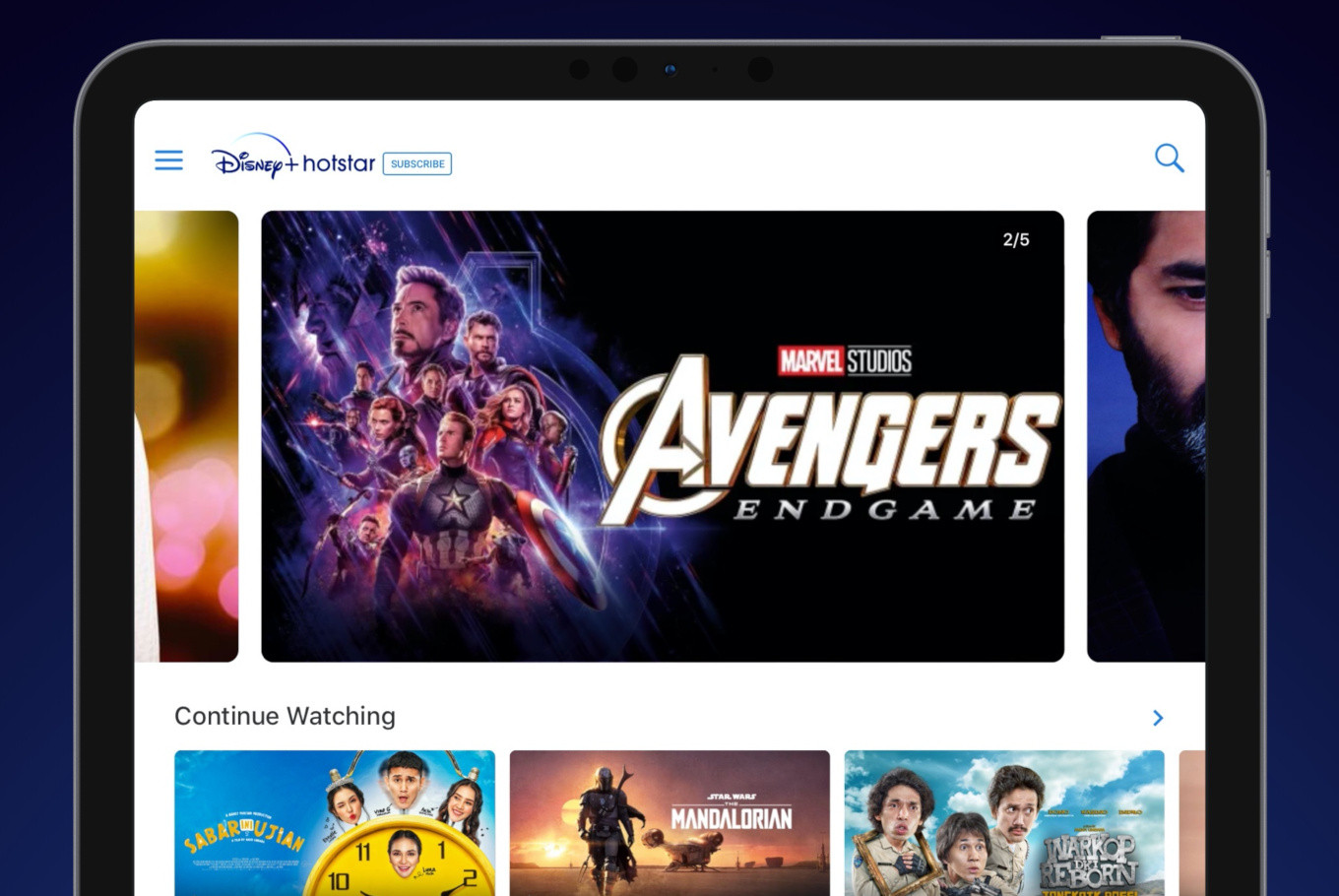Popular Reads
Top Results
Can't find what you're looking for?
View all search resultsPopular Reads
Top Results
Can't find what you're looking for?
View all search resultsHow Disney+ should champion inclusion, content diversity in Indonesia
As the latest streaming service to enter the Indonesian market, Disney+ has big shoes to fill.
Change text size
Gift Premium Articles
to Anyone
I
t is official that Disney+ will be available in Indonesia in September, providing hundreds of exclusive movies and TV series, including the long-awaited live adaptation of Mulan, which was supposed to be released in March, before the pandemic disrupted plans.
Aside from showcasing Disney’s content, the streaming service will also exclusively premiere some Indonesian films produced by big studios like Falcon Pictures and MD Entertainment. Joining them is the Indonesian superhero franchise Bumi Langit Cinematic Universe.
While it’s clear that Disney’s content acquisition strategy targets a wide audience, it is also important to note that the provider probably has more government-imposed restrictions with regard to sourcing content than other streaming services in the country.
Notwithstanding the primary objective of the film industry to generate money, foreign businesses in Indonesia are also required to invest in Indonesian filmmakers and support the local industry. This should explain why we now find more Indonesian films on Netflix, even though we subscribe to it for watching Stranger Things or Dark. That is also the reason why Viu provides Indonesian films like Kenapa Harus Bule and Ini Kisah Tiga Dara, despite knowing that most of its viewers subscribe for its K-dramas.
International streaming services are approved in the country subject to the moral obligation to tell the viewers that there are also great Indonesian films, even though the audience may love K-drama and American series. This expectation to support domestic industries even extends to foreign firms investing in local filmmakers to produce exclusive content.
To this day, Netflix has produced two exclusive original films able to stream globally: Timo Tjahjanto’s The Night Comes for Us and Sammaria Simanjuntak’s Crazy Awesome Teachers. They also plan to produce original content directed by prominent female directors (https://www.thejakartapost.
Through Viu Pitching Forum, Viu invites young filmmakers to pitch their stories and invests in them to produce original series, like Halustik and Knock Out Girl. This trend is also followed by Indonesia’s very own GoPlay that produces its own original/adapted content, like Saiyo Sakato, Tunnel and Gossip Girl Indonesia. These strategies are aimed at nurturing the Indonesian film industry.
As the latest streaming service entering the market, Disney+ has big shoes to fill. For starters, it is not enough to just acquire never-been-premiered films, like Benyamin Biang Kerok 2 and Pelukis Hantu. It should acquire more Indonesian content to show its support for nurturing Indonesian filmmakers. Given that Disney+ champions diversity and inclusion, these values should also extend to this matter.
Lin Manuel Miranda’s Hamilton, Beyonce’s Black is King and even Mulan are probably the perfect examples of the content diversity provided by Disney+. But aside from those films, the platform has also been very supportive to showcase the LGBTQ discourse to its audience.
The original documentary Howard, which tells the story of the late Howard Ashman, and Pixar Sparkshot’s Out focus on a discussion of LGBTQ representation from a family-friendly perspective.
That said, the content acquired by Disney+ should also champion content diversity and inclusion especially for underrated films most people are not familiar with. Aditya Ahmad’s Kado and Anggun Pradesha’s Emak dari Jambi are probably two of the few movies that have created discourse among a wide audience. It is important for a huge institution like Disney to recognize this matter through compelling narratives, since there’s no way these films won’t meet the mainstream audiences in the cinema. Having them on the list while programming how the audience will recognize this content through a seamless user interface on the website and/or in the app will make these gems more accessible.
The documentary Howard portrays Howard Ashman, a gay man living with AIDS in the 90s, in a nondiscriminatory way. It invites the audience to his world and how frustrating it was for him to live. Pixar’s animated short Out even focuses on whether or not an adult gay man should come out to his family and should hide the fact that he already has a boyfriend. A story that captures humility and vulnerability without overly dramatizing the subject matter brings a healthy discussion among viewers as they might relate to some of the situations portrayed in the movies.
A healthy discourse will never happen if we don’t have enough people to talk about such movies. Hence, this shall be the first step. While not holding the powerful magic of cinema, streaming services have their own perks: They provide intimacy and convenience for the audience.
Content curation is a crucial method in sending a statement to the viewers. As the latest streaming platform to enter the country, Disney+ does not have a lot of original mainstream content to acquire. But it could shift its focus to showcasing the hidden gems in the country in order to champion what it’s been telling us: Inclusion and diversity matter. (kes).











